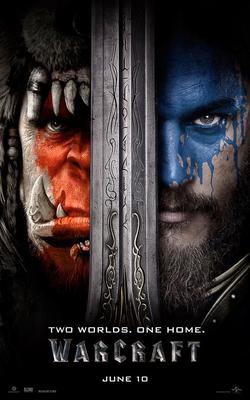A realm is the dominion of a king or queen; a kingdom. Realm may also more broadly refer to everything which falls within a certain set of parameters.
Contents
Realm may also refer to:
A realm is the dominion of a king or queen; a kingdom. Realm may also more broadly refer to everything which falls within a certain set of parameters.
Realm may also refer to:

Kerberos is a computer-network authentication protocol that works on the basis of tickets to allow nodes communicating over a non-secure network to prove their identity to one another in a secure manner. Its designers aimed it primarily at a client–server model, and it provides mutual authentication—both the user and the server verify each other's identity. Kerberos protocol messages are protected against eavesdropping and replay attacks.
Legion may refer to:
A massively multiplayer online role-playing game (MMORPG) is a video game that combines aspects of a role-playing video game and a massively multiplayer online game.
PW may refer to:

World of Warcraft (WoW) is a 2004 massively multiplayer online role-playing (MMORPG) video game produced by Blizzard Entertainment. Set in the Warcraft fantasy universe, World of Warcraft takes place within the world of Azeroth, approximately four years after the events of the previous game in the series, Warcraft III: The Frozen Throne. The game was announced in 2001, and was released for the 10th anniversary of the Warcraft franchise on November 23, 2004. Since launch, World of Warcraft has had ten major expansion packs: The Burning Crusade (2007), Wrath of the Lich King (2008), Cataclysm (2010), Mists of Pandaria (2012), Warlords of Draenor (2014), Legion (2016), Battle for Azeroth (2018), Shadowlands (2020), Dragonflight (2022), and The War Within (2024). Two further expansions, Midnight and The Last Titan, were announced in 2023.
An empire is a group of states or peoples under centralized rule.
A troll is a mythological creature.
A massively multiplayer online game is an online video game with a large number of players to interact in the same online game world. MMOs usually feature a huge, persistent open world, although there are games that differ. These games can be found for most network-capable platforms, including the personal computer, video game console, or smartphones and other mobile devices.
A warlock is a male practitioner of witchcraft and counterpart to a witch, a female practitioner of witchcraft.
Warcraft is a franchise of video games, novels, and other media created by Blizzard Entertainment. The series is made up of six core games: Warcraft: Orcs & Humans, Warcraft II: Tides of Darkness, Warcraft III: Reign of Chaos, World of Warcraft, Hearthstone, and Warcraft Rumble. The first three of these core games are in the real-time strategy genre, where opposing players command virtual armies in battle against each other or a computer-controlled enemy. The fourth and best-selling title of the franchise is a massively multiplayer online role-playing game (MMORPG), where players control their character and interact with each other in a virtual world.

Warhammer Online: Age of Reckoning was a massively multiplayer online role-playing game based on Games Workshop's Warhammer Fantasy setting, developed by Mythic Entertainment and published by Electronic Arts in 2008. The game revolved around the continual worldwide conflict that the Warhammer Fantasy setting is known for, and the game is geared toward ongoing, constant war laced with dark humour. Age of Reckoning ended up selling over a million copies and peaking at 800,000 subscribers, but dropped to 300,000 subscribers several months later. The game received generally positive reviews from critics but shut down in 2013. Since at least 2014, an active private server called Return of Reckoning has been run by fans, and it remains active as of November 2024.
Wizard, the wizard, or wizards may refer to:

An online game is a video game that is either partially or primarily played through the Internet or any other computer network available. Online games are ubiquitous on modern gaming platforms, including PCs, consoles and mobile devices, and span many genres, including first-person shooters, strategy games, and massively multiplayer online role-playing games (MMORPG). In 2019, revenue in the online games segment reached $16.9 billion, with $4.2 billion generated by China and $3.5 billion in the United States. Since the 2010s, a common trend among online games has been to operate them as games as a service, using monetization schemes such as loot boxes and battle passes as purchasable items atop freely-offered games. Unlike purchased retail games, online games have the problem of not being permanently playable, as they require special servers in order to function.
Fantasy is a genre of fiction.
Betrayal is violation of trust.
The history of massively multiplayer online games spans over thirty years and hundreds of massively multiplayer online games (MMOG) titles. The origin and influence on MMO games stems from MUDs, Dungeons & Dragons (D&D) and earlier social games.

Battle.net is an Internet-based online game, social networking service, digital distribution, and digital rights management platform developed by Blizzard Entertainment. The service was launched on December 31, 1996, followed a few days later with the release of Blizzard's action-role-playing video game Diablo on January 3, 1997. Battle.net was officially renamed to "Blizzard Battle.net" in August 2017, with the change being reverted in January 2021.

Final Fantasy XIV was a 2010 massively multiplayer online role-playing game (MMORPG) for Windows, developed and published by Square Enix. It was the original version of the fourteenth entry in the main Final Fantasy series and the second MMORPG in the series after Final Fantasy XI. Set in the fantasy realm of Eorzea, players took control of a customized avatar as they explored the land and were caught up in both an invasion by the hostile Garlean Empire and the threat of the primals, the deities of the land's beastmen tribes. Eventually, they were embroiled in a plot by a Garlean Legatus to destroy the primals by bringing one of the planet's moons down on Eorzea.

Warcraft is a 2016 American action fantasy film based on the video game series of the same name. Directed by Duncan Jones, who co-wrote with Charles Leavitt, it stars Travis Fimmel, Paula Patton, Ben Foster, Dominic Cooper, Toby Kebbell, Ben Schnetzer, Robert Kazinsky, and Daniel Wu. The film follows Anduin Lothar of Stormwind and Durotan of the Frostwolf clan as heroes set on opposite sides of a growing war, as the warlock Gul'dan leads the Horde to invade Azeroth using a magic portal. Together, a few human heroes and dissenting Orcs must attempt to stop the true evil behind this war and restore peace.

World of Warcraft Classic is a 2019 MMORPG video game developed and published by Blizzard Entertainment. Running alongside the main version of the game, Classic recreates World of Warcraft in the state it was in before the release of its first expansion, The Burning Crusade. It was announced at BlizzCon 2017 and was released globally August 26, 2019.